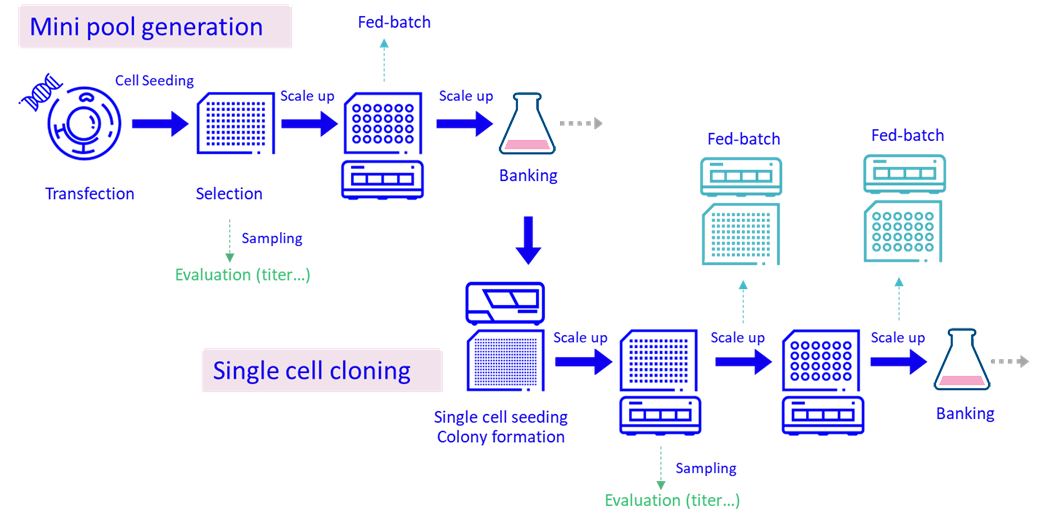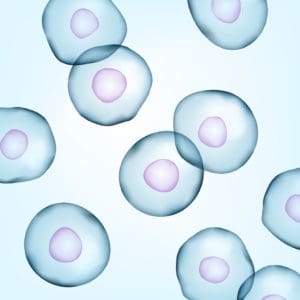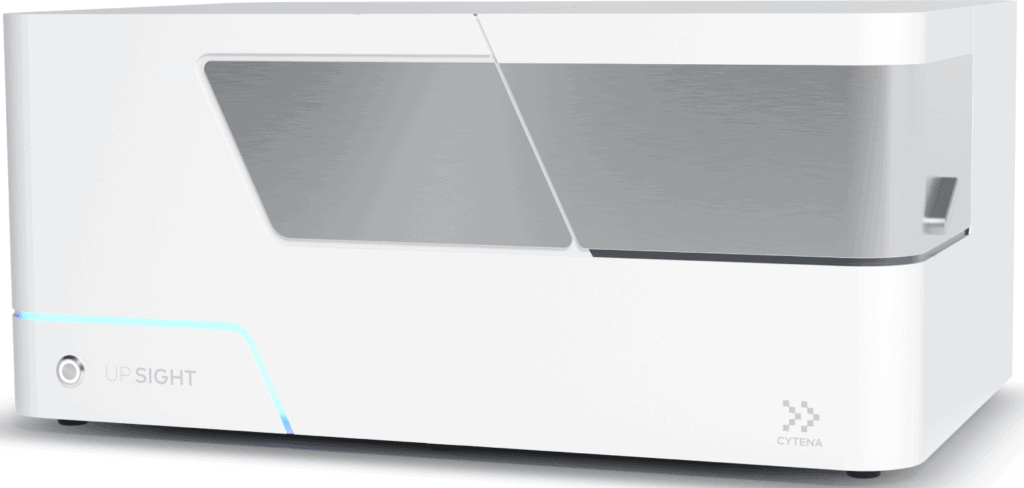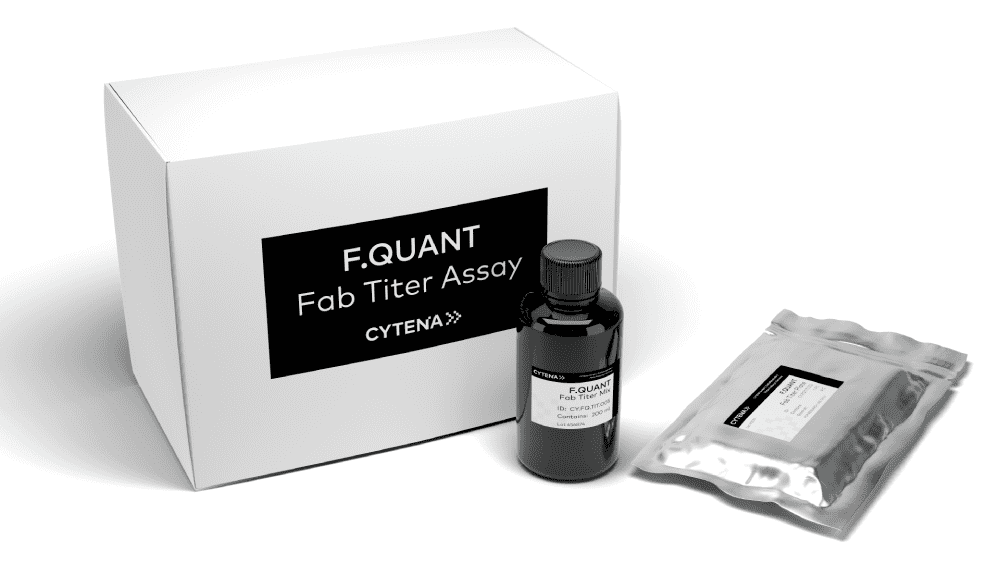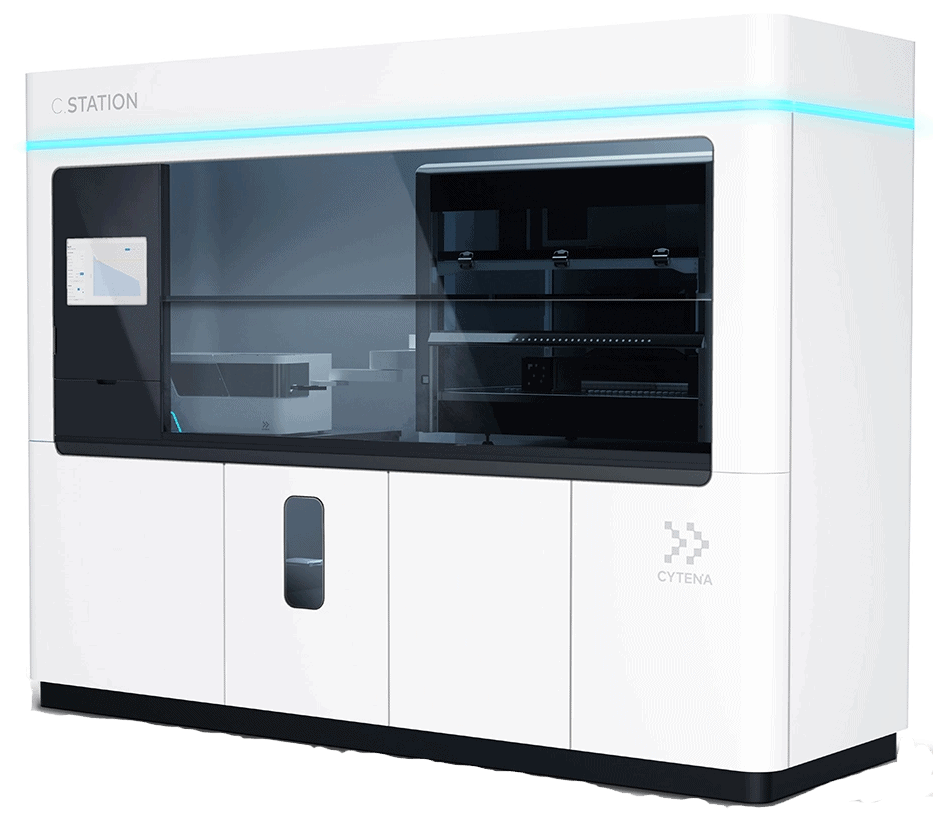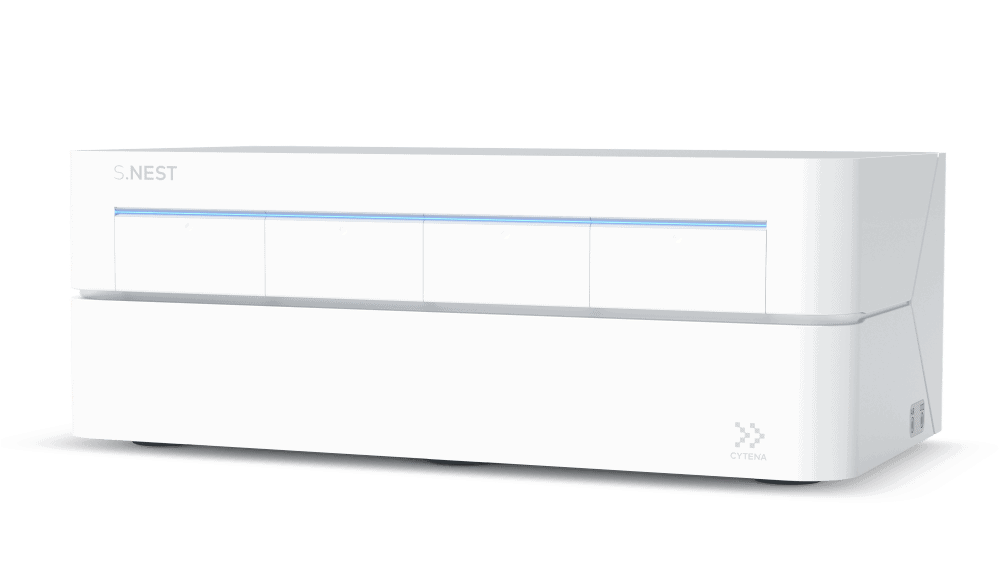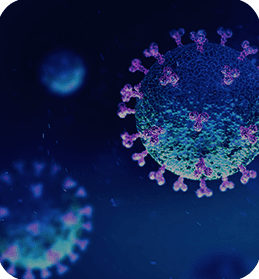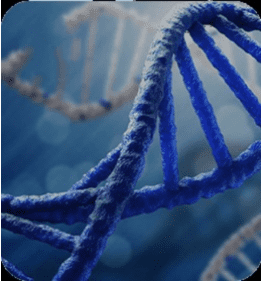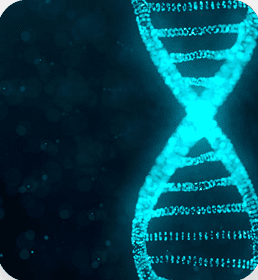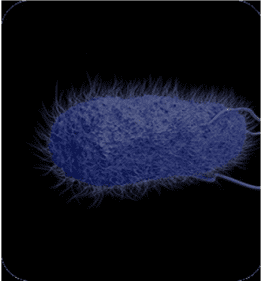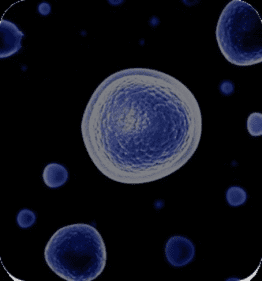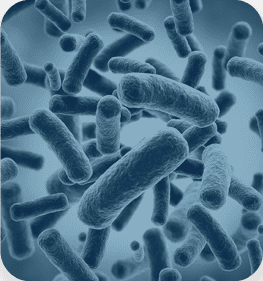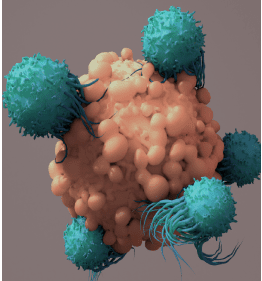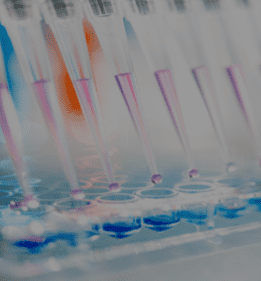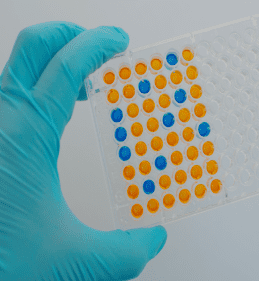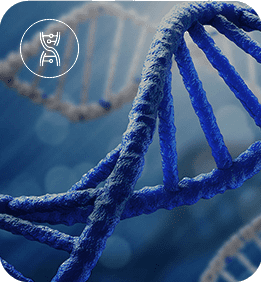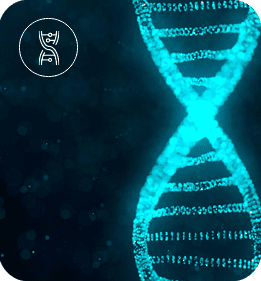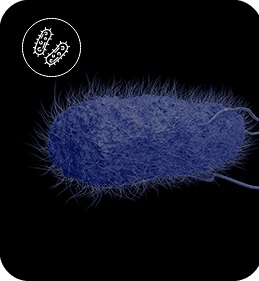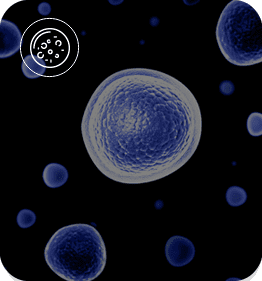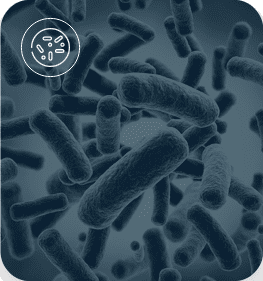Monoclonal antibodies and the next generation of therapeutic complex molecules
using modern, future-proof workflows.
Overview

Sub-Applications
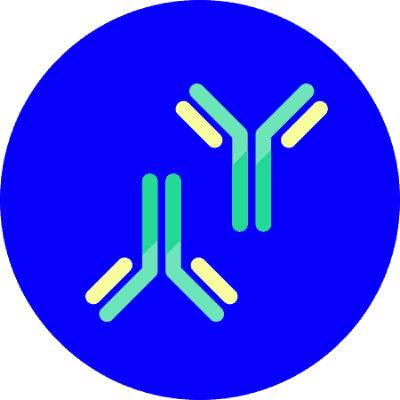
Monoclonal antibody production
Accelerate your CLD workflows using automated, high-throughput single-cell isolation technology. Establish high-producing clones efficiently, with >99.9 % probability of clonality.
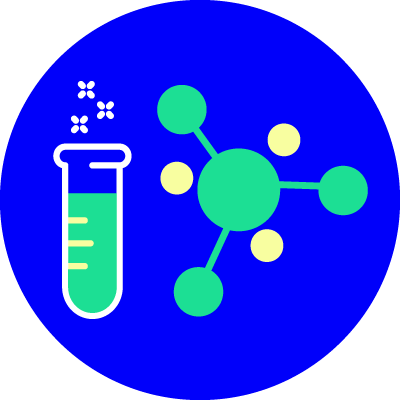
Multispecific-molecule production
Pioneer the production of the next generation bi- and tri-specific molecules with our end-to-end CLD workflow. Streamline your research and minimize risk with robust quality controls and high percentage clonal derivation.
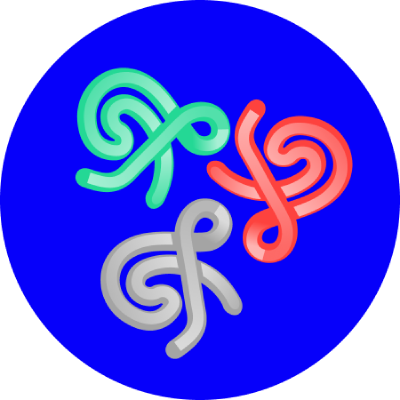
Therapeutic protein production
Generate clonally derived cell lines producing high titers of hard-to-express enhanced fusion proteins.
Research Workflows


The S.NEST and C.NEST, are microbioreactors capable of cell suspension mixing and generating mini-pools that aid the selection of optimal clones for mAb production. This workflow supports an early feedback process before biobanking, thus providing crucial information on how clones will behave in larger production bioreactors. Approved mini-pools can be cloned using the UP.SIGHT’s single-cell dispensing and dual imaging capabilities to ensure monoclonality and monitor growth. The S.NEST and C.NEST can provide further feedback on clone performance before biobanking.
